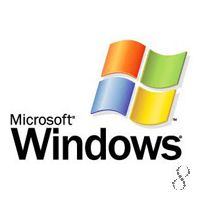Understanding DEV Issues
Typical DEV Opening Challenges
Dev-C++ Isn't There
When you double-click your DEV file, you may see a dialog box from your operating system stating that it "Cannot Open This File Type". Usually, this is because you do not have Dev-C++ for %%os%% installed. The typical path of opening your DEV with a double-click won't work because %%os%% cannot make the program connection.
Tip: When another DEV application is installed, you can choose to open it by selecting "Show Apps" and using that program.
Obsolete Version of Dev-C++
Sometimes your installed version of Dev-C++ won't support your Dev-C++ Project File file. Download the latest Dev-C++ version from the Bloodshed Software website to ensure you have the correct one installed. This issue mainly occurs when your Dev-C++ Project File file was created by a newer version of Dev-C++ than you have on your PC.
Tip: Find clues on the correct software version by right-clicking your DEV file and clicking "Properties".
Regardless, most of the DEV file opening problems relate to not having the right version of Dev-C++ installed.
Other Causes of DEV File Opening Problems
Even with the correct version of Dev-C++ installed, you can still experience difficulties opening DEVs. If you are still having problems opening DEV files, there may be other issues that are preventing you from opening these files. These other problems include (listed in order from most to least common):
- File references in the Windows Registry for DEV are wrong
- Corruption of the DEV file description inside the Registry
- Dev-C++ or another DEV application experienced a flawed installation
- The DEV itself is corrupted
- DEV file integrity has been compromised by malware
- Hardware associated with DEV has outdated drivers
- Your PC doesn’t have enough available resources to open the Dev-C++ Project File file
Quiz: Which file extension is a type of raster image?

That's Correct!
TIFF files, or Tagged Image File Format, is a considered a raster image file. They are very popular with the publishing industry because of their ability to be compressed using lossless compression (maintaining high quality).
Close, but not quite...
TIFF files, or Tagged Image File Format, is a considered a raster image file. They are very popular with the publishing industry because of their ability to be compressed using lossless compression (maintaining high quality).
























